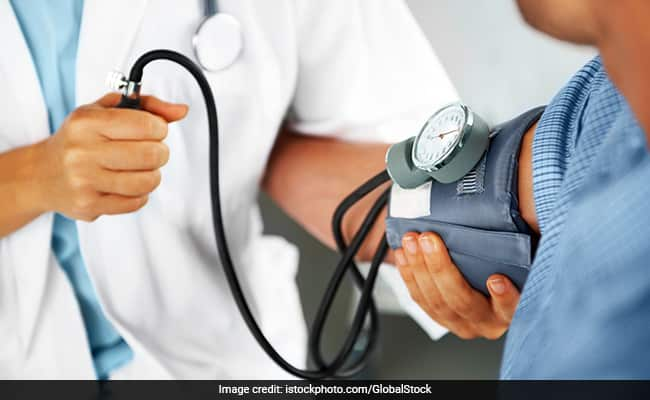Many children with hypertension, do not have any symptoms but if left untreated can go on to develop headaches, blurring of vision, chest pain, easy fatigue, even fainting attacks and seizures.

Untreated childhood hypertension can cause chronic effects like heart attacks and strokes
Hypertension or high blood pressure is thought to be a disease in adults, however it has become a developing concern among children and adolescents. A CDC study shows that 1 in 25 children between the ages of 12-18 suffer from hypertension and many go unrecognised. Children seldom show obvious symptoms of hypertension, making it difficult to diagnose in time. World Hypertension Day is celebrated every year on May 17th to raise awareness and emphasise on its early detection.
A child is defined to have hypertension when their blood pressure is at or above the 95th percentile value for age and height as opposed to a single cut-off which is used in adults. Hypertension in children could be 'Primary or essential' when it results from a unhealthy life style and obesity. Hypertension occurring due to other medical condition is termed as 'Secondary Hypertension'. Kidney disorders, cardiac illnesses and also hormonal issues can result in secondary hypertension.
Symptoms of high blood pressure in children
Many children with hypertension, do not have any symptoms but if left untreated can go on to develop headaches, blurring of vision, chest pain, easy fatigue, even fainting attacks and seizures. Untreated childhood hypertension tracks into adulthood and causes chronic effects like retinal and kidney damage, heart attacks and strokes. Thus for timely interventions, every child should have his or her blood pressure measured beyond the age of three years, during every visit at the paediatrician's office.
Once diagnosed with hypertension, your paediatrician will advice a battery of tests, especially of the kidneys, to rule out secondary hypertension. If the hypertension is a result of poor diet and obesity, life style modifications can help in controlling the blood pressure effectively. Having a balanced diet rich in fruits and vegetables, restricting salt, avoiding processed food intake and encouraging frequent physical activity should be strictly implemented.
As this year's theme rightly points out Measuring BP accurately, controlling it well will help you live a healthy and longer life. It is crucial to identify children who are at risk and intervene timely. Routine blood pressure monitoring should be incorporated into paediatric health check-up protocols. We can all work together to raise awareness, detect early and intervene appropriately. On this World Hypertension Day, let us make a promise to protect the health of our next generation from this silent killer.
(Dr. Tanuja Karande, Consultant, Pediatric Cardiologist, Kokilaben Dhirubhai Ambani Hospital Mumbai)
Disclaimer: The opinions expressed within this article are the personal opinions of the author. NDTV is not responsible for the accuracy, completeness, suitability, or validity of any information on this article. All information is provided on an as-is basis. The information, facts or opinions appearing in the article do not reflect the views of NDTV and NDTV does not assume any responsibility or liability for the same.
DoctorNDTV is the one stop site for all your health needs providing the most credible health information, health news and tips with expert advice on healthy living, diet plans, informative videos etc. You can get the most relevant and accurate info you need about health problems like diabetes, cancer, pregnancy, HIV and AIDS, weight loss and many other lifestyle diseases. We have a panel of over 350 experts who help us develop content by giving their valuable inputs and bringing to us the latest in the world of healthcare.














